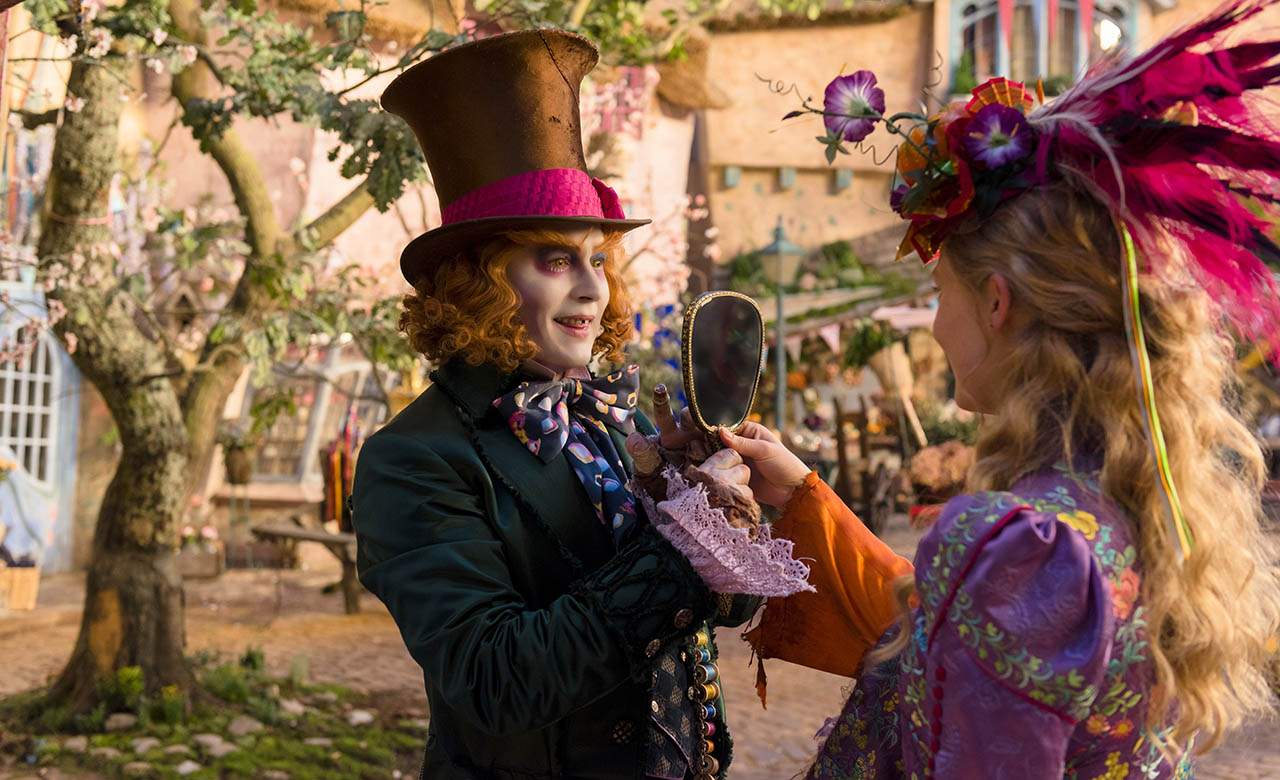Alice Through the Looking Glass
The financially motivated follow-up is seriously uninspired.
Overview
Have you ever wondered why the Mad Hatter is so mad? No, of course you haven't. One of the wonders of Lewis Carroll's Alice's Adventures in Wonderland is that it doesn't try to explain the headwear enthusiast's mental state — it just accepts him for who he is and lets him get on with his tea party. Movie adaptations have done the same to date, including Tim Burton's 2010 live-action effort Alice in Wonderland. Alas, Disney is intent on sharing the origin stories of every classic literary figure it can think of, leaving Alice Through the Looking Glass to explore Hatter's background.
In fact, with Alice (Mia Wasikowska) out in the real world, sailing the seas and attempting to save her mother's house, it's the plight of Hatter (Johnny Depp) that actually brings her back to the fantastical Underland. This time he's the one who's lost much of his muchness, thanks to his newfound belief that his long-gone family might still be alive. To help her truest friend, Alice visits Time himself (Sacha Baron Cohen), then goes jumping back through Hatter's history. His past isn't his alone, with his tale intertwined with the feuding antics of Red Queen Iracebeth (Helena Bonham Carter) and her White Queen sister (Anne Hathaway).
As such, Alice Through the Looking Glass is both a prequel and a sequel. Given that its predecessor made more than a billion dollars at the global box office, the reason for the film's existence is obvious — as is the determination of director James Bobin (The Muppets) to follow in Burton's footsteps wherever he can. More peculiar is the decision of writer Linda Woolverton to turn Alice into a little more than an observer in the story, making her character the least interesting part of the movie in the process.
As a result, Wasikowska is left largely watching on, even if she does ensure Alice seems suitably older and wiser. And while Depp receives top billing, he's carefully deployed — a little of his all-too-familiar wackiness goes a long way. With Bonham-Carter cartoonish and Hathaway mostly placid, it's left to Baron Cohen to bring the liveliness the film so badly needs. Sadly, despite his best efforts and never-ending supply of time-based puns, Alice Through the Looking Glass is never the energetic adventure it so desperately wants to be.
That said, Bobin's movie is never boring — only misguided. Trying to ape Burton's over-the-top sensibilities was always going to be difficult, but simply shifting focus to the kookiest figure, throwing together similar set-pieces and asking most of the cast to repeat their previous performances isn't the way to go about it. Even the candy-coloured visuals don't shine as brightly this time around. That the film's most striking imagery stems from scenes of decay says more than it probably should.





